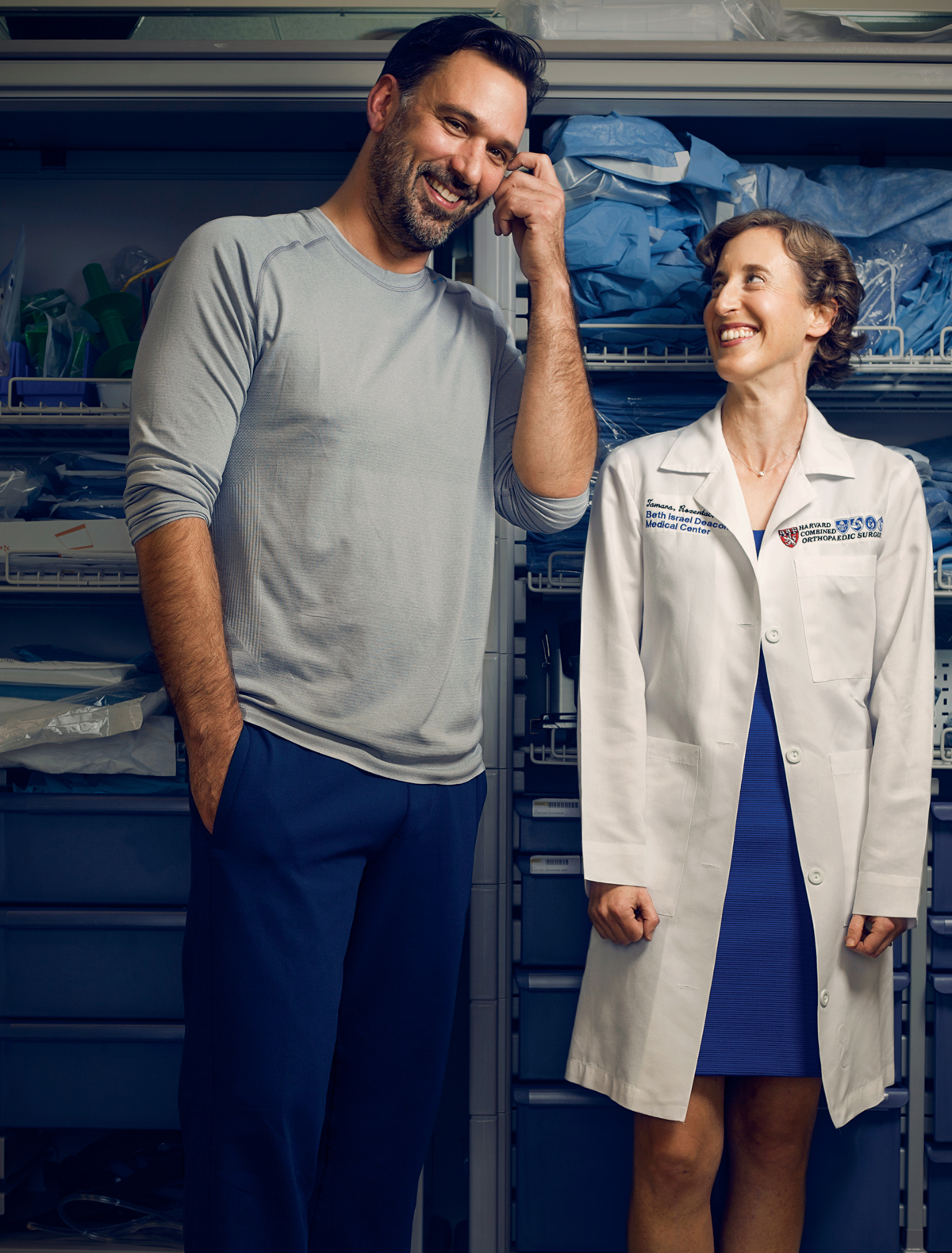Six Heroic Saves

Photograph by Henry Busby
The Doctor:
Tamara Rozental
Orthopedic surgeon, Beth Israel Deaconess Medical Center
The Patient:
Christian Williams
Senior art director, Boston
When Tamara Rozental arrived at Beth Israel shortly after the bombings, Christian Williams “was the first person I laid eyes on,” she says. And his injuries were extensive: Williams had severe wounds on both legs, but Rozental, an upper-extremities specialist, immediately grew concerned about his right hand, which was broken in several places. “His hand had basically been blown off, and his index finger was hanging by a thread,” she says.
“I think she knew right off the bat that my hand was going to take the longest to recover from,” Williams says. Rozental kept tabs on his progress, visiting him daily, but lost track of him after he was released. “I made multiple attempts to get ahold of him and his docs, but I couldn’t find him,” she says. She did have his cell-phone number, so she texted him to make sure he was okay.
Once they made contact, Williams says, “She’d ask me to send her a photo of my wounds every two days” to help manage his care. What began as a string of digital diagnoses developed into a friendship. And when he learned that his girlfriend, Caroline, who was also injured in the blasts, was pregnant, “Dr. Rozental was the third person I told, other than my roommate and my brother, that we were having a baby,” he says.
Now she’s looking forward to getting another cell-phone photo—a baby picture—around Christmas.


